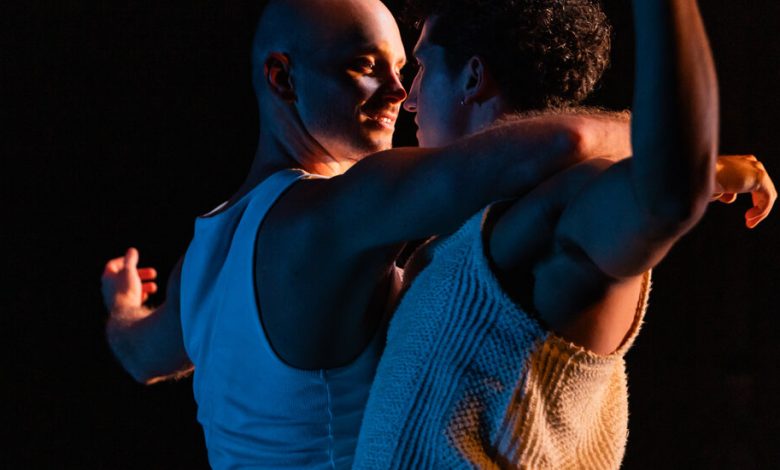Review: ‘Ain’t Done Bad’ Tells a Familiar Gay Story in Dance

The tale is familiar: A young gay man, rejected by his father, leaves home and finds love and acceptance elsewhere. But “Ain’t Done Bad” packages this story in a new form: as a 90-minute narrative dance set to recordings by the out-and-proud country musician Orville Peck.
“Ain’t Done Bad” — which, unusually for dance, is getting an eight-week run at Pershing Square Signature Theater — is conceived, directed and choreographed by Jakob Karr, an impressive dancer who also stars as the son. This is Karr’s first such effort, and like many first novels, the show suggests autobiography. Mostly clear and engaging in its storytelling, it’s earnest, sometimes sexy and fundamentally sweet.
We meet the son with his family. There’s the mother (Megumi Iwama), who lets him play with her makeup. There’s the brother (Ian Spring), who knocks him down in roughhousing but also picks him back up. And there’s the father (the explosive, effectively creepy Adrian Lee), who is angry and disapproving.
The son also has friends (the perky Jordan Lombardi and Yusaku Komori). They draw him out into playful, line-dance flamboyance and initiate him with a sparkly-fringed denim jacket. Karr skillfully contrasts this liberating joy with the table-slapping arguments of the son’s family.
Escaping into the wider world, the son discovers a gay club and experiences some steamy, ankle-on-shoulder duets. (Is it just economy or is there a psychological subtext to the double casting of Spring and Lee, brother and father, as lovers?) After intermission, the son finds someone he wants to bring home (Josh Escover, who’s good looking, great at turning and a bit of a blank).
Peck’s music, with his Elvis croon drifting through a spaghetti western sonic landscape, is inherently dramatic. It supports both the story and the dancing well, supplying heartache and homoeroticism, galloping horsepower and pedal-steel romance. The choreography moves in parallel to the lyrics that don’t directly apply and underlines plenty of those that do, like “the love that you need will never be found at home.”
